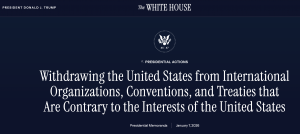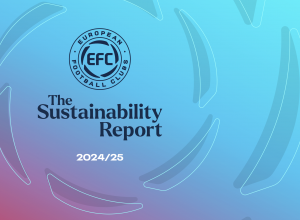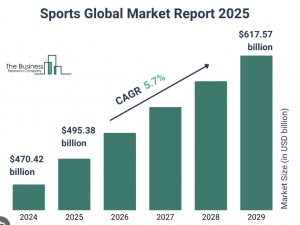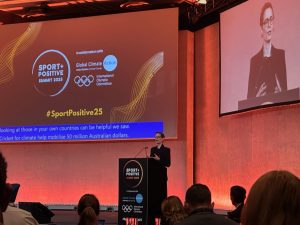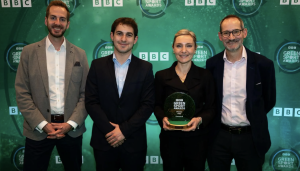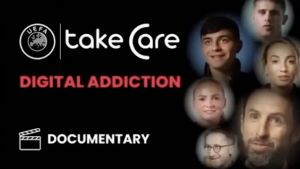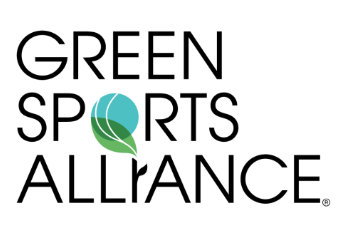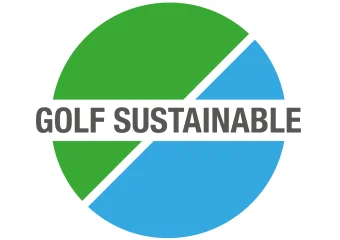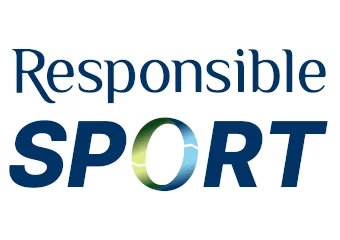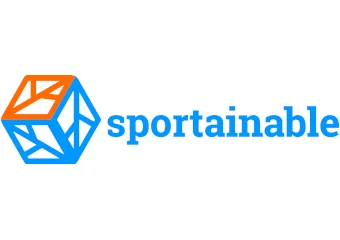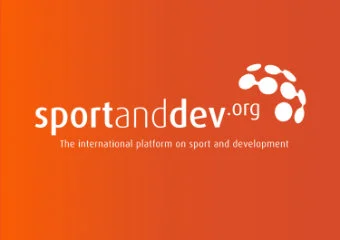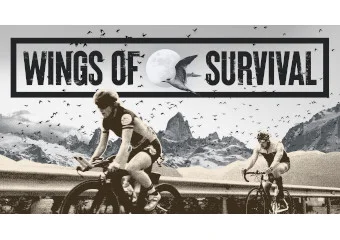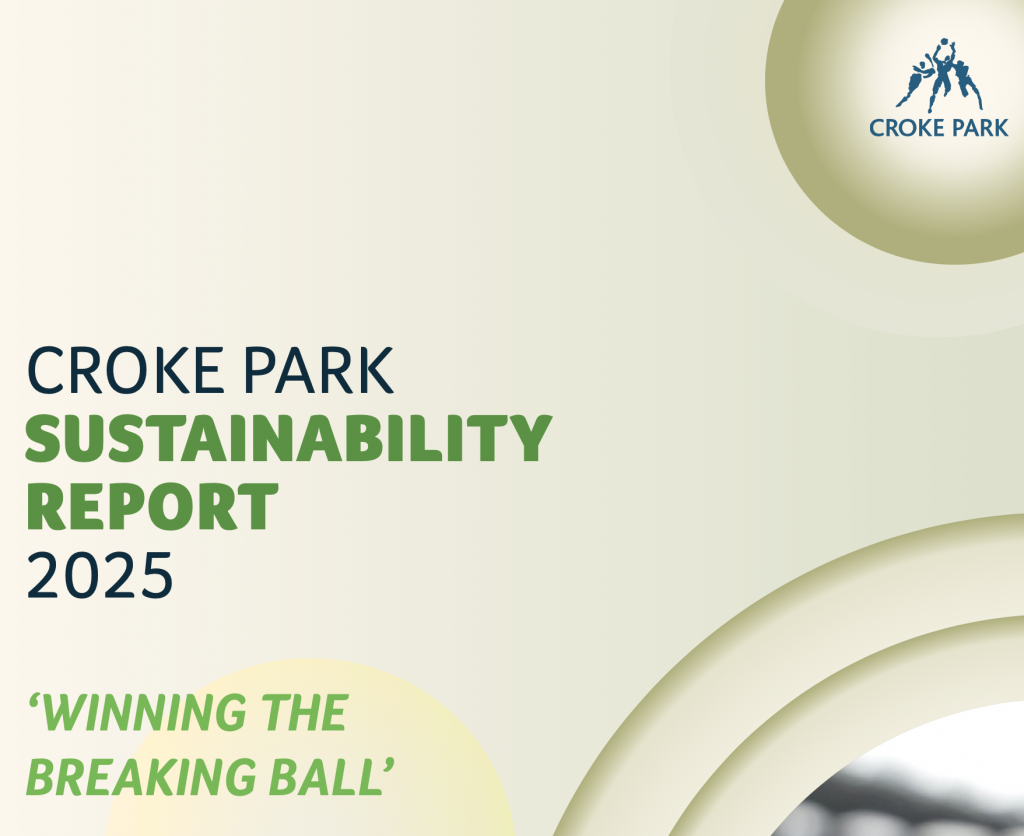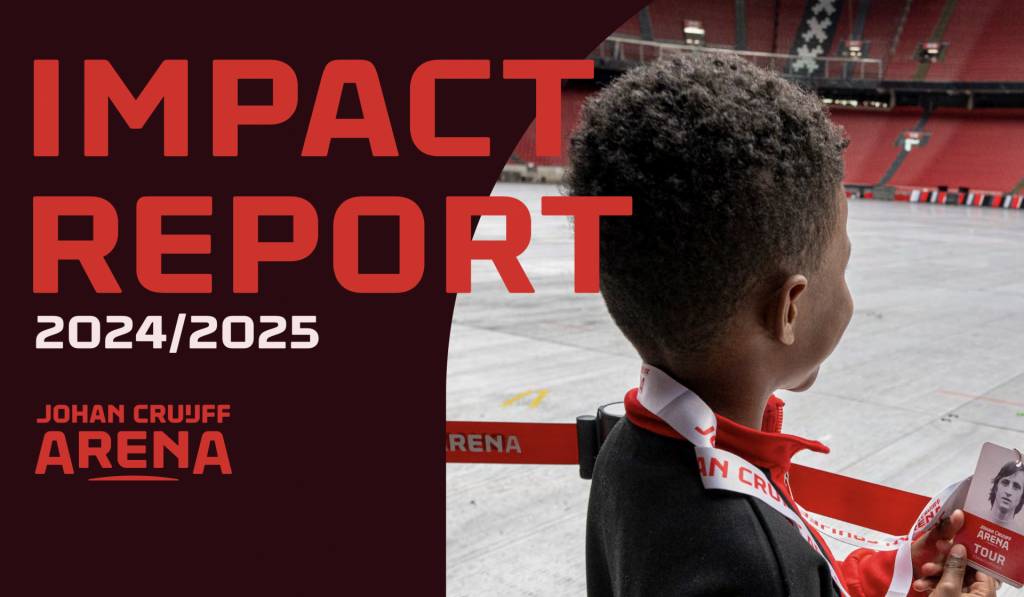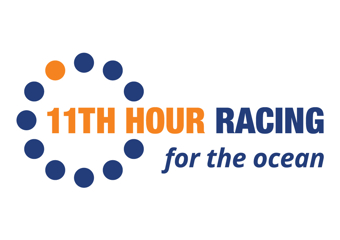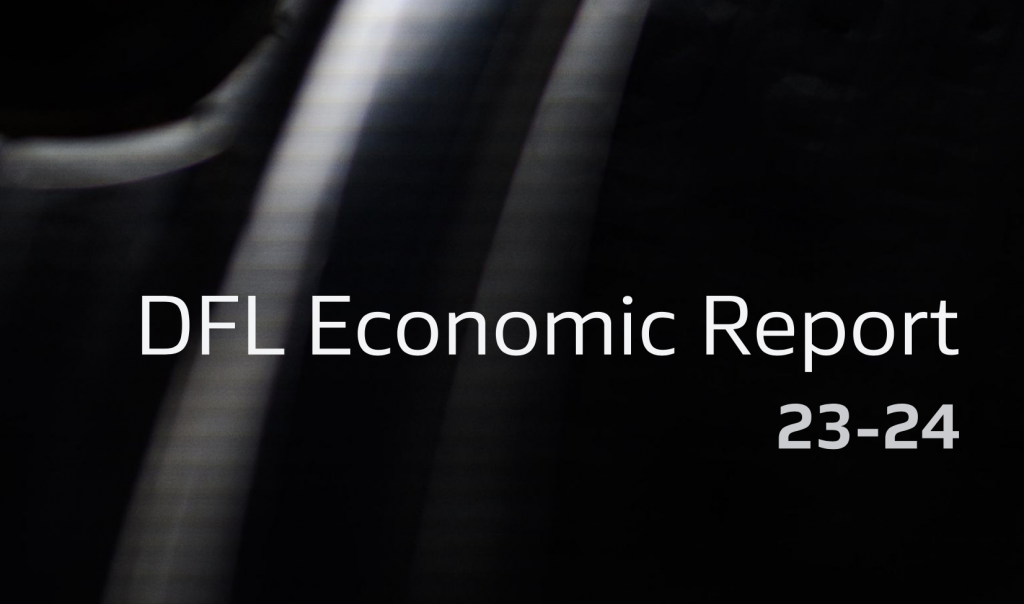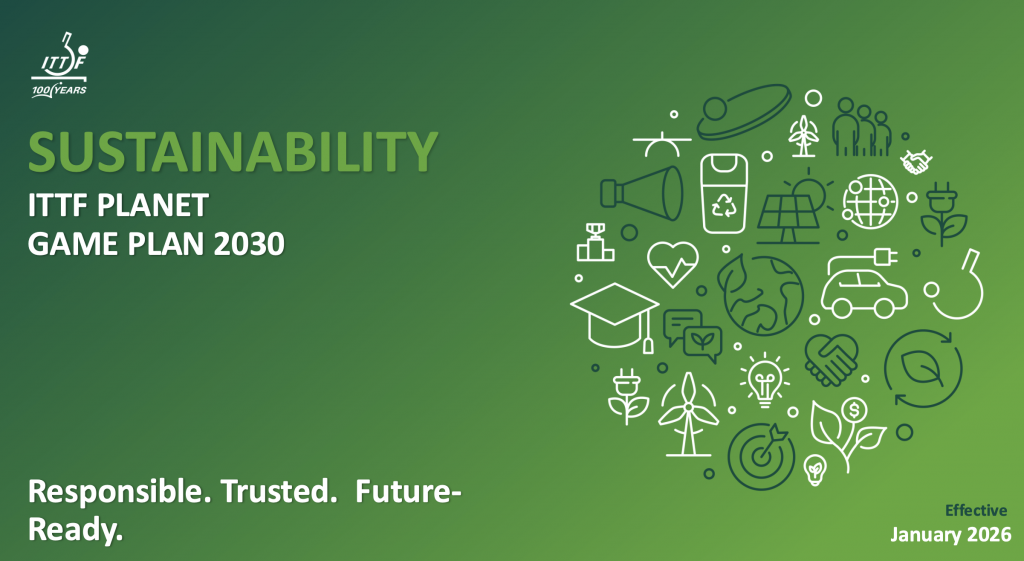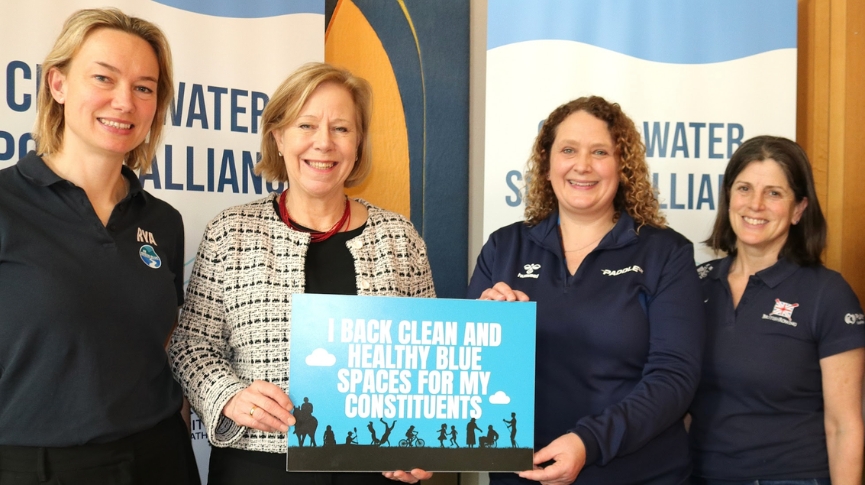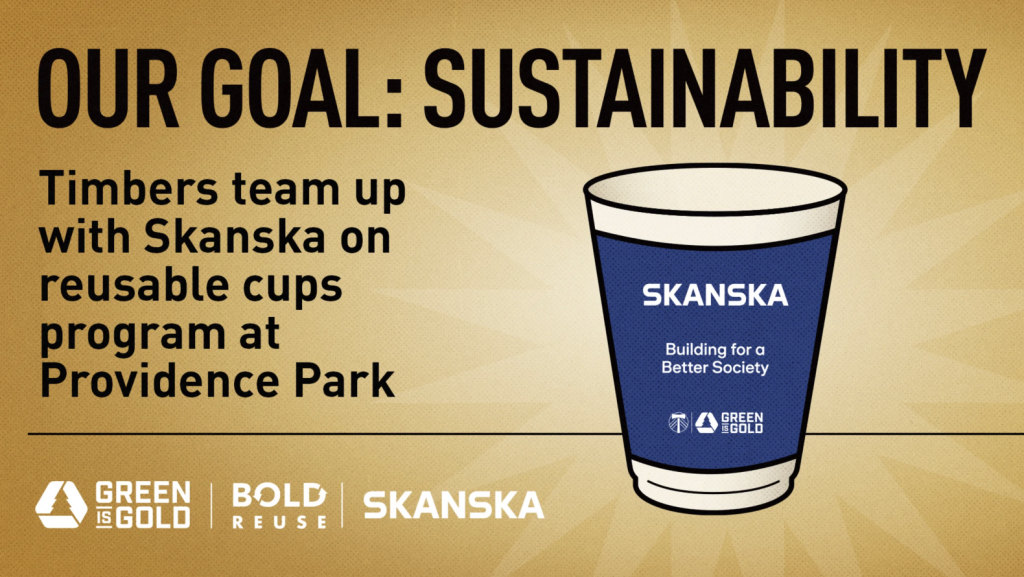To access our unique news archive of over 1,400 articles with insights on over 500+ sustainable sports organisations, join the GSS Network today.
Login here if you are a registered network subscriber.
News article
Sports’ GHG emissions — good intent, but an urgent need for leadership and funding
According to a survey conducted by Global Sustainable Sport (GSS) and 51toCarbonZero there is a significant gap between intent and action regarding sustainability in the sports industry. While climate risk is widely recognised and audiences are engaged, overall progress is slow, measurement is inconsistent, and confidence in meeting future targets is low.

The survey focused on greenhouse-gas (GHG) action, one of the core pillars in most environmental strategies. Sports organisations from 17 sports and 22 countries responded to the survey from a cross-section of the sports industry including international and national federations, leagues, teams, clubs, events and suppliers.
Further analysis by GSS of 1,500 sports organisations shows that just over 45% of organisations have some form of environmental programme – from basic carbon measurement through to comprehensive environmental plans.
Reflecting on the survey Mike Laflin, CEO and Founder of Global Sustainable Sport commented that “This survey shows that many people in sport understand the urgent need to address climate change. Targets have been set in many cases and people have committed to measuring and reducing. But the outcomes and methods are very mixed and confused. Without clear leadership, dedicated funding and credible measurement, especially around Scope 3 and spectator travel, the sports industry is going to struggle to make a genuine contribution to reducing GHG emissions and meeting the 2030 and 2040 targets.”
High Awareness vs. Limited Progress
There is clear intent within the sector, as nearly 60% of sports organisations consider environmental sustainability to be “very” (38%) or “extremely” (21%) important. This is mirrored by audience sentiment, with 41% of respondents reporting that fans and stakeholders view sustainability as “very” or “extremely” important.
For many rights-holders, clearly the audience signal from fans and brands is there but not yet overwhelming, especially in more mature markets where price and performance still dominate.
However, this awareness has not translated into significant action.
- Progress: 41% of organisations report making “some progress” in reducing emissions, while only 3% claim “significant progress”.
- Targets: While 38% have set a GHG emission target, most of them are behind schedule. In fact, only 10% of all respondents are on track to meet their goals.
“This survey shows that many people in sport understand the urgent need to address climate change. Targets have been set in many cases and people have committed to measuring and reducing. But the outcomes and methods are very mixed and confused. Without clear leadership, dedicated funding and credible measurement, especially around Scope 3 and spectator travel, the sports industry is going to struggle to make a genuine contribution to reducing GHG emissions and meeting the 2030 and 2040 targets.”
Primary Barriers: Funding, Leadership, and Measurement
The primary obstacles to progress are a “lack of funding or resources” (28%) and “low prioritisation by leadership/management” (24%). This indicates a disconnect between sustainability staff and senior management, whose lack of engagement is hindering the industry’s efforts. Other key challenges include “difficulty measuring or reducing emissions” (10%) and a “lack of clear industry guidance or standards” (10%).
A major blind spot remains in measurement, particularly concerning Scope 3 emissions and spectator travel.
- 28% of organisations do not measure emissions at all.
- Among those that do, practices vary widely: 21% measure all scopes including fan travel, while 17% measure all scopes but exclude it, and another 17% measure only Scopes 1 & 2.
- This inconsistency undermines confidence, with only 14% of respondents feeling “very confident” in their emissions data.
Steve Mutri, Founder and Sports Director of Ni-Wakati Sports Africa in Kenya added “The Sustainability Journey is an ‘ALL OF US’ affair. We do agree that sustainability barriers are Time, Leadership and Funding”
“The Sustainability Journey is an ‘ALL OF US’ affair. We do agree that sustainability barriers are Time, Leadership and Funding”
Given that fan travel can dominate an event footprint, excluding it materially undercounts impact and undermines credibility. A recent GSS comparison of the GHG disclosures of two Premier League clubs’ illustrates how data completeness can yield a four-to-one difference in reported emissions despite broadly similar stadium sizes and attendance figures —confusing fans, brands, and media alike.
Impact on Risk and Commercial Opportunities
Despite a clear understanding of the threat, with 76% viewing climate as a “real” (52%) or “extreme” (24%) risk, this is not consistently reflected in formal risk disclosures. In GSS’s recent analysis of the English Premier League, only three clubs referenced climate explicitly as a risk in their annual reports, despite several being signatories to the UN Sports for Climate Action Framework (UNFCCC). The industry is aware of the risk; it now needs to evidence how that risk is being managed through its boardroom.
Arsenal, Liverpool and Tottenham Achieve ‘Developed’ Status in New GSS Assessment Programme
There is much talk about a new commercial opportunity based around a more sustainable sports industry but based on the survey results, sustainability is not yet a deciding factor in sponsorships. Only 24% of respondents state that sustainability credentials are “very/extremely important” to securing partners. Some brands are clearly rewarding credible progress and prioritising sustainability; others continue to prioritise reach, rights and returns. As awareness and action improve, regulatory pressures increase and fan expectations strengthen, this balance is likely to shift.
Scepticism Towards Future Goals
This slow progress has led to a pessimistic outlook on achieving industry-wide targets.
- 2030 Target: 52% believe it is “unlikely/extremely unlikely” that the industry will achieve a 50% emissions reduction by 2030.
- 2040 Target: More respondents feel the UN’s “net zero by 2040” goal is “unlikely” (38%) than “likely” (27%) to be achieved.
With five years to go, 2030 is out of reach for many unless leadership focus, funding and standards tighten quickly.
Commenting on the survey Titti Rodling, Project Manager of the Nordic Sustainability Arena/World Cup Åre said “The survey makes clear that without strong leadership and resources, progress on sustainability will stall. Setting clear fossil-free goals and standing by them requires courage from the top – and in snow sports, this leadership is more urgent than ever.”
"The survey makes clear that without strong leadership and resources, progress on sustainability will stall. Setting clear fossil-free goals and standing by them requires courage from the top – and in snow sports, this leadership is more urgent than ever."
Clearly there is a long way to go before the sports industry starts to see significant progress in reducing its carbon emissions: most organisations value environmental sustainability and some recognise climate risk to their operations. Yet the journey from commitment to credible, measured reductions remains challenging for many. Targets are sometimes set but often missed; measurement is improving but inconsistent, especially for the critical category of spectator travel; and confidence in both data and sector-level frameworks is moderate at best.
“We need sector-wide momentum and support”
Commercially, sustainability already influences some sponsorships, but clearer proof of impact will be decisive. Without strong leadership and financial support early actions will not translate into significant wins in the more complex areas of carbon emissions. As Mike Laflin concluded “We need sector-wide momentum and support”
Read moreGSS and 51 to Carbon Zero
Join the GSS Alliance Partners programme today
Stay ahead of the game with our FREE weekly newsletter, delivering the latest sport and sustainability news from around the globe straight to your inbox
Join the GSS Network programme today
Register for GSS Workshops today
Join the GSS Education programme today


